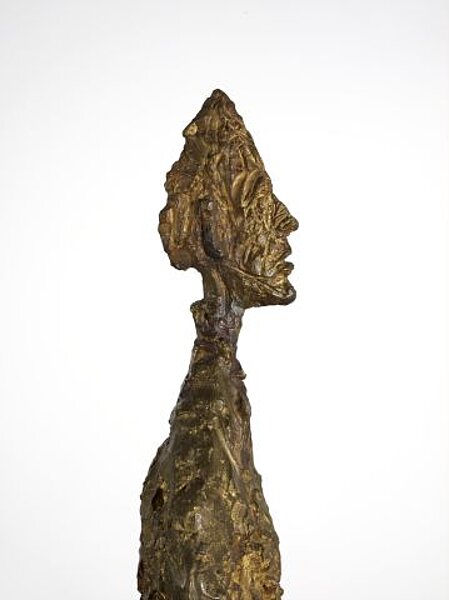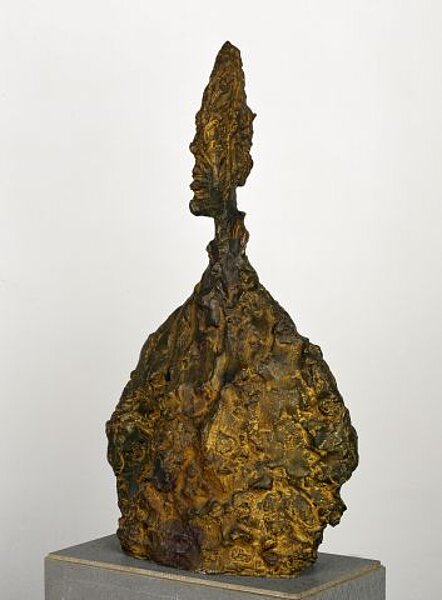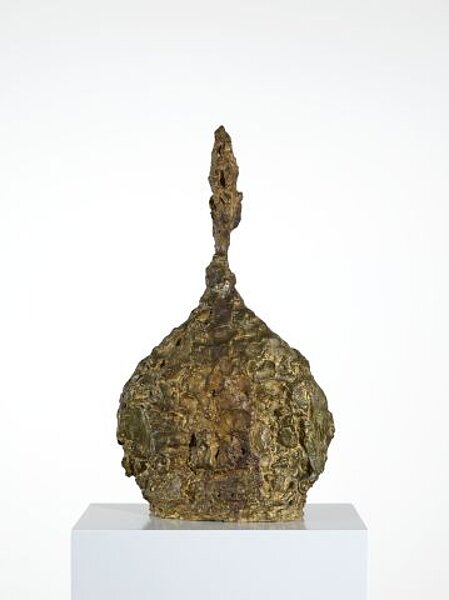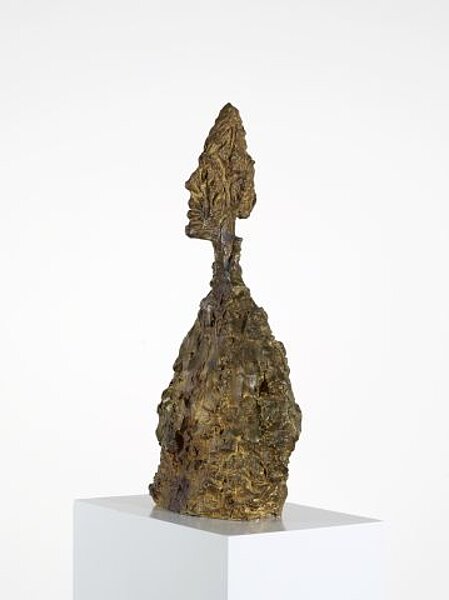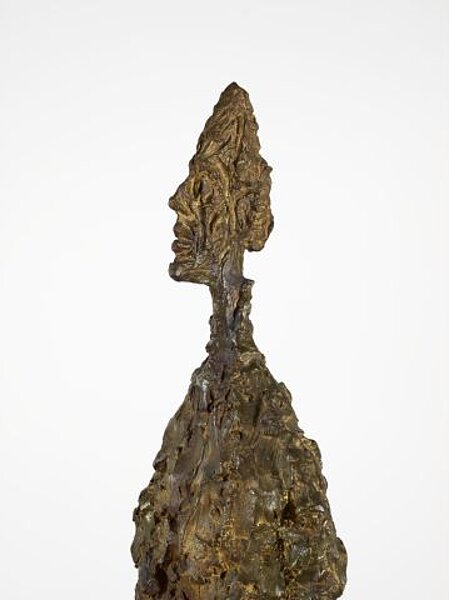
Giacometti, Alberto
Buste de Diego
Bust of Diego
1955
| Object description | Bronze casting |
|---|---|
| Object category | sculpture |
| Material |
Support:
bronze
|
| Technique | |
| Dimensions |
Objektmaß:
height: 56,5 cm,
width: 33 cm,
depth: 14 cm
Gesamtobjekt:
weight: 7,15 kg
|
| Year of acquisition | 1962 |
| Inventory number | P 222/0 |
| Creditline | mumok - Museum moderner Kunst Stiftung Ludwig Wien |
| Rights reference | Bildrecht, Wien |
| Further information about the person | Giacometti, Alberto [GND] | Giacometti, Alberto [ULAN] |
| Literature |
Museum moderner Kunst Stiftung Ludwig Wien Porträts. Aus der Sammlung Josef Pillhofer L/AL-TRO RI-TRAT-TO ALBERTO GIACOMETTI.Pionier der Moderne/Modernist Pioneer Im Zeichen der Erfahrung : Der Skulpturbegriff von Anne Truitt |
Giacometti confessed his obsessive struggle for the ideal of complete likeness, which Jean-Paul Sartre dubbed the “request for the absolute” by portraying his loved ones. His brother Diego, his close friend and collaborator hereby assumes the role of alter ego, of the artists’ second self. Alberto discovers, that the greatest possible likeness to reality can be attained only if one does not represent what one knows about an object, but how it appears to one, namely as a small blurred object, as a particle in the field of vision, forever related to space which is perceived optically. Sartre comments in amazement: „Alberto was the first to take up the idea of representing man as one sees him that is from the distance. He forms his figure at a distance of ten feet, of twenty feet, but whatever you may do, it would stay in place. Do not entertain false hopes, this breast will not swell. We sense the tips of the breast, we imagine them. Now we are in a position to behold them, one more step, then all is gone. All that is left are folds of plaster. The statues can only be beheld from a respectful distance.” The sculpture carries that distance within as part of its meaning; it is pressed into the dramatically cragged surface. Furrows and craters are the traces of work, which exemplify the struggle to rest the figure from reality, in the words fully sense. Diego’s rigid frontality which forces us to assume a frontal position, his hallucinatory gaze, his insurmountable distance yet simultaneous closeness lend him an icon like aura.
© mumok – museum moderner kunst stiftung ludwig wien



